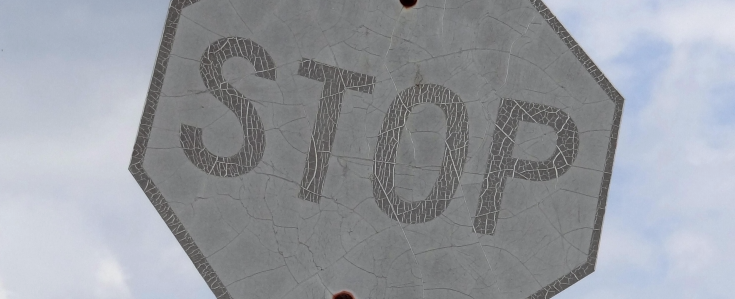Why Plagiarism Will Never Go Away…
 For nearly ten years now I’ve been writing about plagiarism and other forms of content misuse on this site. However, plagiarism as an act goes as far back as the birth of language and as a term and a misdeed since the first century CE.
For nearly ten years now I’ve been writing about plagiarism and other forms of content misuse on this site. However, plagiarism as an act goes as far back as the birth of language and as a term and a misdeed since the first century CE.
Plagiarism is as much a part of our cultural history as originality. Whether its our filmmakers, our musicians, our writers, our journalists, our scientists or our artists, plagiarism has always been lurking in the background.
If anything, plagiarism has experienced something of a renaissance with the rise of the personal computer and the Internet. With it being easier to find, copy, paste, edit and republish content, more and more are taking shortcuts to achieve their goals, ethics be dammed. This has led to an arms race between plagiarist and anti-plagiarist to create better tools, techniques, policies and procedures for detecting and stopping plagiarism.
But for all of the talk about “stamping out” plagiarism, it’s all for naught. Plagiarism has always been an issue for creativity and it always will be. The only thing that will change is the boundaries between what is and is not acceptable.
The reason for this is remarkably straightforward. Some number of people, no matter how small, will, to paraphrase Jason Chu at iThenticate, always value the end result over the process, prompting them to take shortcuts, often involving the work of others.
The Temptation of Shortcuts
To be clear, the problem isn’t unique to plagiarism. It’s a problem that has to do with any shortcut that achieves an end goal.
Humans, invariably, try to find the easiest ways to accomplish their goals. Most of the time a discovery about an easier way to do something is just called progress. We invest an incredible amount of resources into discovering easier, faster and more accurate ways of completing tasks,
Other shortcuts, however, defeat the entire purpose of the task. For example, when a scientist publishes a paper, their goal may be to further their own career and be rewarded for their work, but the purpose of the task is to further human knowledge. If a scientist falsifies research or plagiarizes the work a peer, that purpose is defeated.
Likewise, while a novelist is looking to sell books and earn a living, the purpose of the work is to create something new and provide the audience with an entertaining and unique experience. Plagiarism also defeats that purpose.
Even before we look at how plagiarism victimizes the plagiarized, in nearly every field where plagiarism can take place, the act of unattributed copying is also an affront to the goals of the field.
This is why, for example, the legal profession takes a very different stance on plagiarism than a journalist. For lawyers, copying and pasting without attribution is not just a shortcut, but a necessary part of the job. The goal of a lawyer isn’t to make new and novel legal arguments (at least not usually), but rather, to make arguments that best serve their client’s needs.
Still, the purpose of the task can be very difficult to understand and, for some, is easily clouded by the selfish rewards that they receive from completing it. It’s the same as how an employee at a large company might not see how their efforts are important to the company’s goals, but they definitely see the importance of their paycheck.
And that, in turn, is the issue. Far too often there is a wide separation between what the goals of the task are and the rewards for the person completing it. A scientist who publishes a paper and gets a promotion is removed from the larger quest for knowledge.
That divide plays a big role in causing plagiarism. After all, it’s easy to justify taking a harmful shortcut when you don’t see the harm and it helps you meet your goals or needs.
Enter The Constitution and Copyright
Fixing the problem, unfortunately, is going to be impossible. The reason is because we have to give creators rewards that are separate from the benefits they provide society. You can’t pay a scientist with the knowledge they contribute to the world because they can’t buy food or pay for their rent with it.
This is partly why we have copyright law. Article I, Section 8, Clause 8 of the U.S. Constitution says:
To promote the Progress of Science and useful Arts, by securing for limited Times to Authors and Inventors the exclusive Right to their respective Writings and Discoveries.
In short, the constitution recognizes that improving science and art is a societal benefit but that alone will not will not be enough to encourage creation. As such, the Constitution empowers Congress to grant a financial incentive, a monopoly over the creation, to provide more practical motivation.
But when creators only seek the practical motivation and don’t care about the larger contribution they’re making, it becomes more morally acceptable to take shortcuts that either contribute nothing or outright harm the field.
As I said, plagiarism isn’t alone in this field. Falsification, authorship issues and misleading promotion are all examples of unethical shortcuts that seek to complete a work and reap the benefits from it without completing that work’s contract to its audience and society.
But regardless of the exact ethical failing, tackling them is a matter of trying to connect the creator with the purpose behind their work.
Reducing the Problem
Since fixing the problem is impossible, the better goal is to begin reducing it or, at the very least, blunting its rise.
While we can’t necessarily connect the rewards of a work with the intended contributions, we can definitely teach creators why the work is important and showcase where it fits in the larger picture.
For example, in the classroom, students often plagiarize because they want or need a good grade but don’t see what the larger purpose of their education is or where the assignment fits in with it. If a student doesn’t see the value in that particular course, class or assignment, they’re more likely to plagiarize in it.
So, sometimes, the simplest way to reduce plagiarism is to explain why the work is necessary. This might seem to be a silly thing to explain, but every creator has to do things they might not fully understand. This includes students, researchers, artists, and everything in between.
Of course, explaining why a work is important and worth putting the work into doesn’t mean everyone is going to agree or get excited enough to avoid plagiarism. Some, no matter how hard you try, will only see the means to their ends with plagiarism being an acceptable shortcut.
But still, amongst all of the talk about the ethics of plagiarism and what the punishments for it are, doesn’t it make sense to also explain why originality is important in the first place? When one is explained by not the other, we aren’t teaching others to be better writers, we’re laying down a law without a justification for it, making it easy for some some to justify breaking it.
While it seems strange that legitimate creation needs justification, policymakers have to stop looking at the problem through the prism of impassioned creators who want to change the world and start looking at it from the prism of selfish individuals who want their grade, their money or their acclaim.
Simply put, not everyone who creates does so for the reason. Some are forced to, such as students, others do it begrudgingly, such as some researchers, and others just want to make a living, such as many artists.
The sooner we recognize that and begin to center the discussion around it, the better of we will all be.
Bottom Line
In the end, plagiarism, and the related academic/literary sins, are sins of selfishness, putting the end benefits for the “creator” above the process and the benefit the work is supposed to give others.
However, human beings are a venal and selfish species. It should surprise no one that some will choose to take shortcuts that are unethical as long as they benefit themselves. No amount of explaining or teaching will fix that but, then again, neither will any amount of punishment or fear.
Some will always be willing to set aside the morals and the risks to take a shortcut to success.
So plagiarism is never going to go away. Neither will lying, stealing, cheating or any other crime of self-enrichment.
Still, we can change how we address it and why. We can work to ensure that those who try to be honest stay on the right side of the ethical code and we can try to dissuade those who might be unsure.
But, when it’s all said and done, if someone wants to plagiarize, they’re going to. No matter what obstacles you put in their way.
Disclosure: I am a paid consultant for iThenticate
Want to Reuse or Republish this Content?
If you want to feature this article in your site, classroom or elsewhere, just let us know! We usually grant permission within 24 hours.
